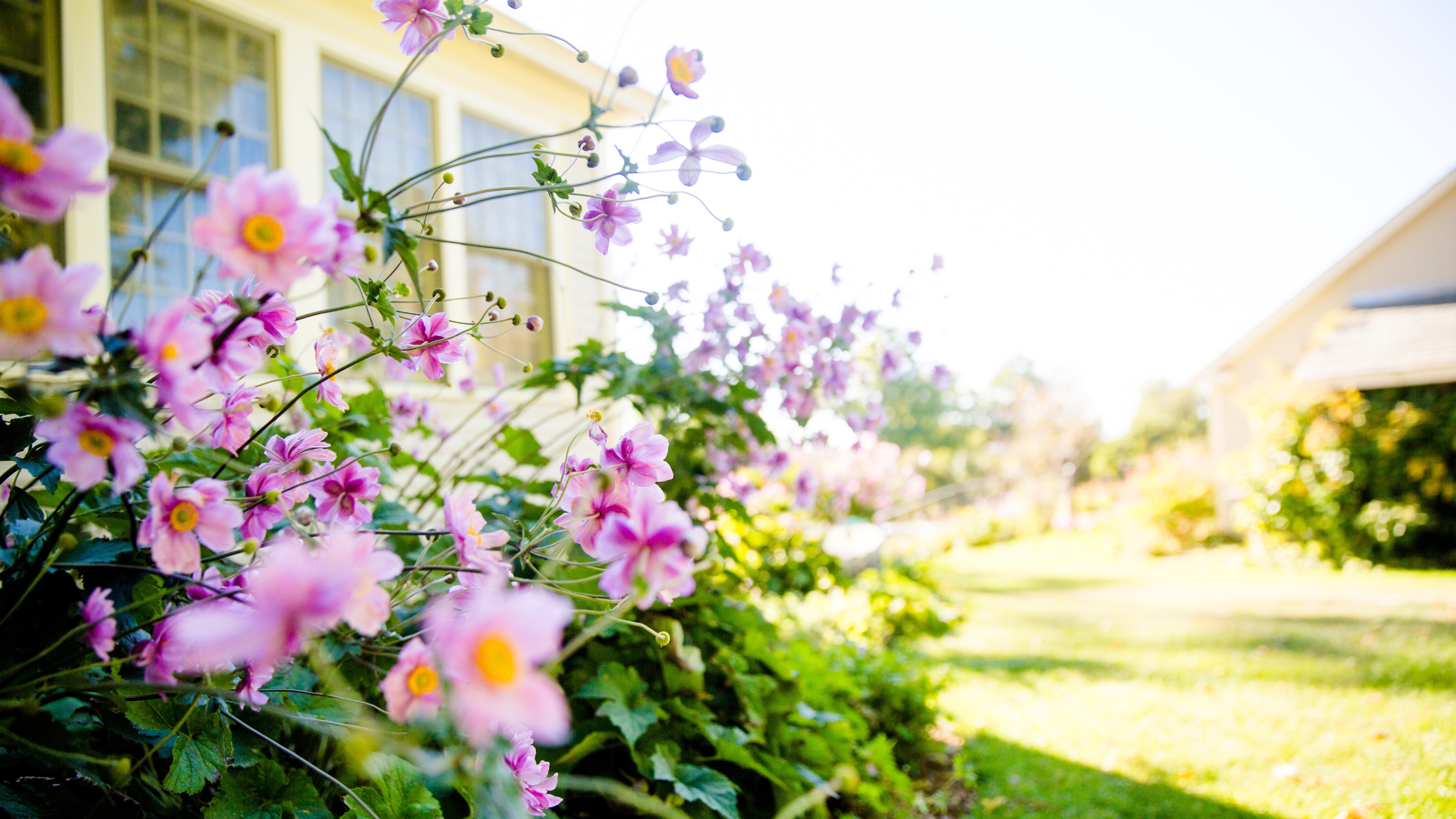
Knowing ways to keep pests out of your backyard is essential for enjoying your outdoor space and protecting your plants.
From pest-repelling flowers to fencing, our industry experts reveal seven ingenious steps to a pest-free garden. Our seven brilliant methods, products and pro tips will help you avoid those all the creepy crawlies, flying insects and small critters that would otherwise give you the major ick whenever you step outside.
Just as with keeping pests out of your home, a few carefully-conducted steps could be all that stands between you and the enjoyable yard of your dreams.
1. Yard maintenance

Preventing pest infestations begins with maintaining your yard.
Bryan Clayton, chief executive officer of GreenPal, says, "Keeping your yard clean and tidy is critical when it comes to deterring unwanted intruders. Regular mowing, removing standing water, and decluttering can drastically reduce pest populations. Tall grass and debris are breeding grounds for pests like ticks and mosquitoes."
Store firewood and compost piles away from your home and garden to reduce the risk of pests migrating into your yard. Clean up fallen leaves, branches, and other debris, as these can provide shelter for insects and rodents.
Bryan adds, "By maintaining a well-groomed yard, you eliminate many of the hiding spots and breeding sites for these critters."
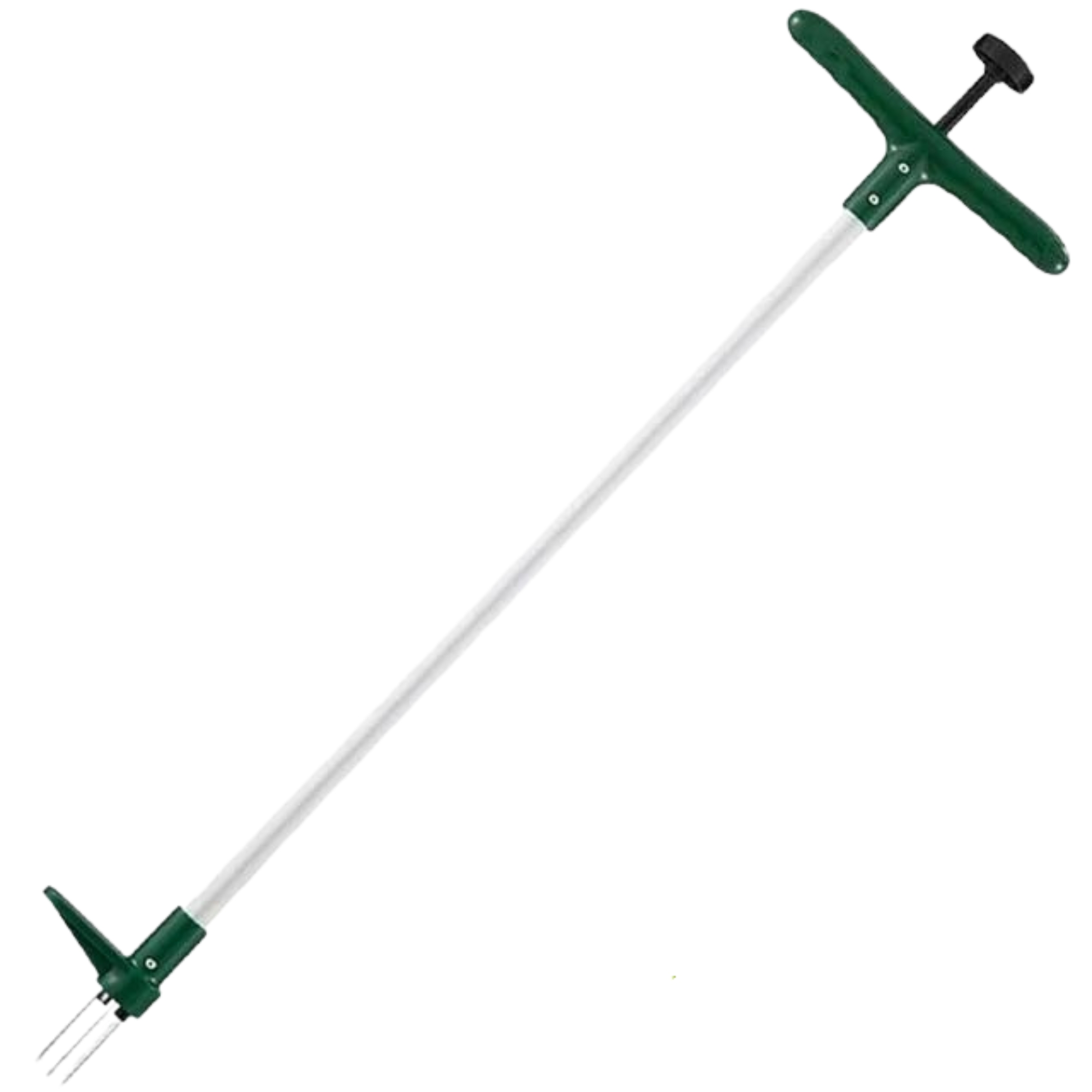
Price: Was $35.99, now $29.99
Size (inches): 39.5H x 9.5W x 2.5D
This long-armed weeder is ideal for yard maintenance. It's made of durable, rust-resistant stainless steel — among the best outdoor materials you can buy. At 39 inches, it helps avoid back ache while the long handle allows a solid grip. The spiky end is effective on multiple weed types, including dandelions.

Price: From $9.99 (pack of two)
Sizes: Small, medium, and large
Safe for humans and the environment, as certified by OEKO-TEX STANDARD 100, these lightweight COOLJOB Gardening Gloves are created with a sturdy, foamed, breathable, latex coating. Expect an excellent grip, super stretchy base, sweat-free hands, and cute color options to boot.

Price: Was $33.29, now $18.99
Dimensions (in.): 17.5 x 11 x 1.5
This Gorilla Grip Extra Thick Kneeling Pad offers comfort without slippage when maintaining your yard, alleviating joint aches during lengthy gardening tasks. With 21,500 reviews and an average 4.6/5 stars given by happy customers, thousands of keen gardeners approve.
2. Natural predators
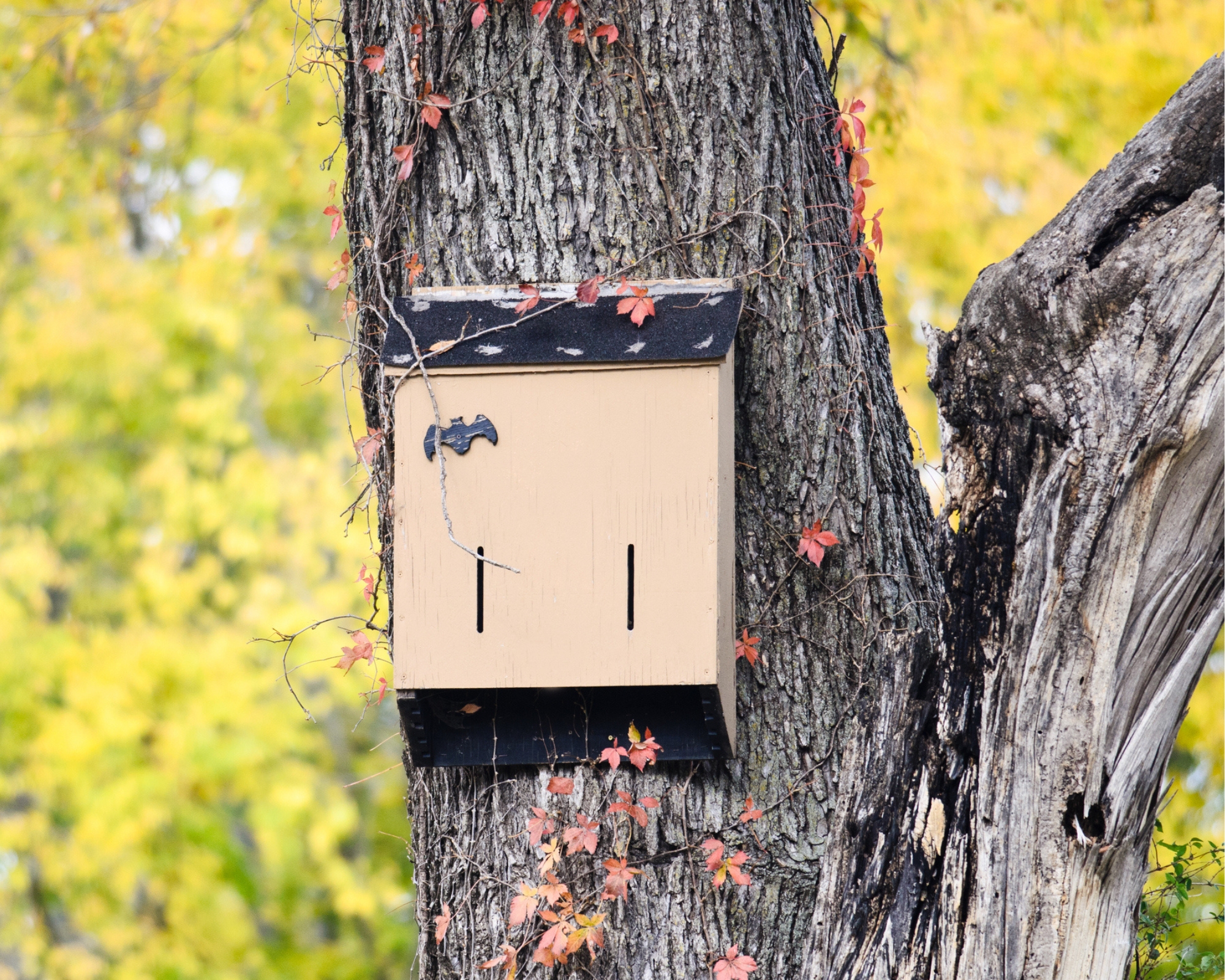
Encouraging natural predators is a sustainable and eco-friendly way to control pest populations. Birds, frogs, lizards, and beneficial insects like ladybugs and lacewings can help reduce pests such as aphids, caterpillars, and mosquitoes.
Bryan Clayton says, "Introducing natural predators into your yard is one of the most effective and environmentally friendly ways to manage pests.
"For instance, installing a bat house helps control mosquito and moth populations since a single bat can eat thousands of insects each night. Similarly, attracting birds can help reduce the number of crawling insects like ants and ticks."
Create a welcoming environment for these predators by planting native vegetation, providing water sources like birdbaths, and avoiding the use of broad-spectrum pesticides that can harm them.
3. Diatomaceous earth
Diatomaceous earth (DE) is a non-toxic, natural substance made from the fossilized remains of tiny aquatic organisms called diatoms. It works by dehydrating pests such as ants, slugs, and fleas.
Bryan says, "Sprinkle this fine powder around your yard, especially near foundations and garden beds. DE works mechanically, not chemically, causing insects like ants, roaches, and fleas to dry out and die by absorbing the oils and fats from their cuticles. It's effective, natural, and safe for use around pets and children."
We recommend the PF Harris Diatomaceous Earth from Walmart has no fillers or additives, which means it meets organic-use standards.
While DE is safe for humans and pets, take care to avoid inhaling the fine dust during application. Be sure to reapply after rain or watering, as DE loses its effectiveness when wet.
4. Natural repellents

Natural repellents can be an effective way to deter pests without harming the environment. Garlic, neem oil, and essential oils such as peppermint, eucalyptus, and citronella can repel a variety of pests.
Bryan recommends Soil Sunrise Natural Cedar Mulch from Target. He says, "Not only does cedar mulch help retain soil moisture and suppress weeds, but its natural oils also repel many types of insects including ticks and fleas. It’s a great choice for garden paths and around the foundation of your home."
Neem oil — such as the Natria Neem Oil, also from Amazon — is another popular deterrent for pests. James Heartquist, homes expert at Modern Property Solutions, says, "This ready-to-use neem oil spray is organic disease control at its best — a convenient and effective way to tackle pests like aphids and mites without resorting to harsh chemicals. The fact that it's ready-to-use means there's no mixing required, which saves time and ensures the correct concentration is always applied."
Peppermint oil — such as the Essentially KateS Store Peppermint Oil from Amazon — is another popular natural backyard deterrent. James says, "This particular peppermint oil is 100% pure and comes with a detailed user's guide and glass dropper. Peppermint oil is highly effective against ants, spiders, and even rodents due to its strong scent that pests find overwhelming."
Citronella oil torches or candles — such as the Charlton Home Citronella Candles from Wayfair — are great for dealing with mosquitos. Bryan also recommends the Summit Store Mosquito Dunks from Amazon.
He says, "Throw these doughnut-shaped products into standing water and they release a bacterium toxic to mosquito larvae but harmless to other wildlife. It’s perfect for preventing mosquitoes from taking over rain barrels or birdbaths."
Additionally, planting pest-repellent herbs like basil, mint, and rosemary can help keep insects at bay while adding beauty and fragrance to your garden. Just be careful with mint as it is fast-growing and invasive. We recommend growing it in a pot so you can control the spread.
5. Synthetic repellents
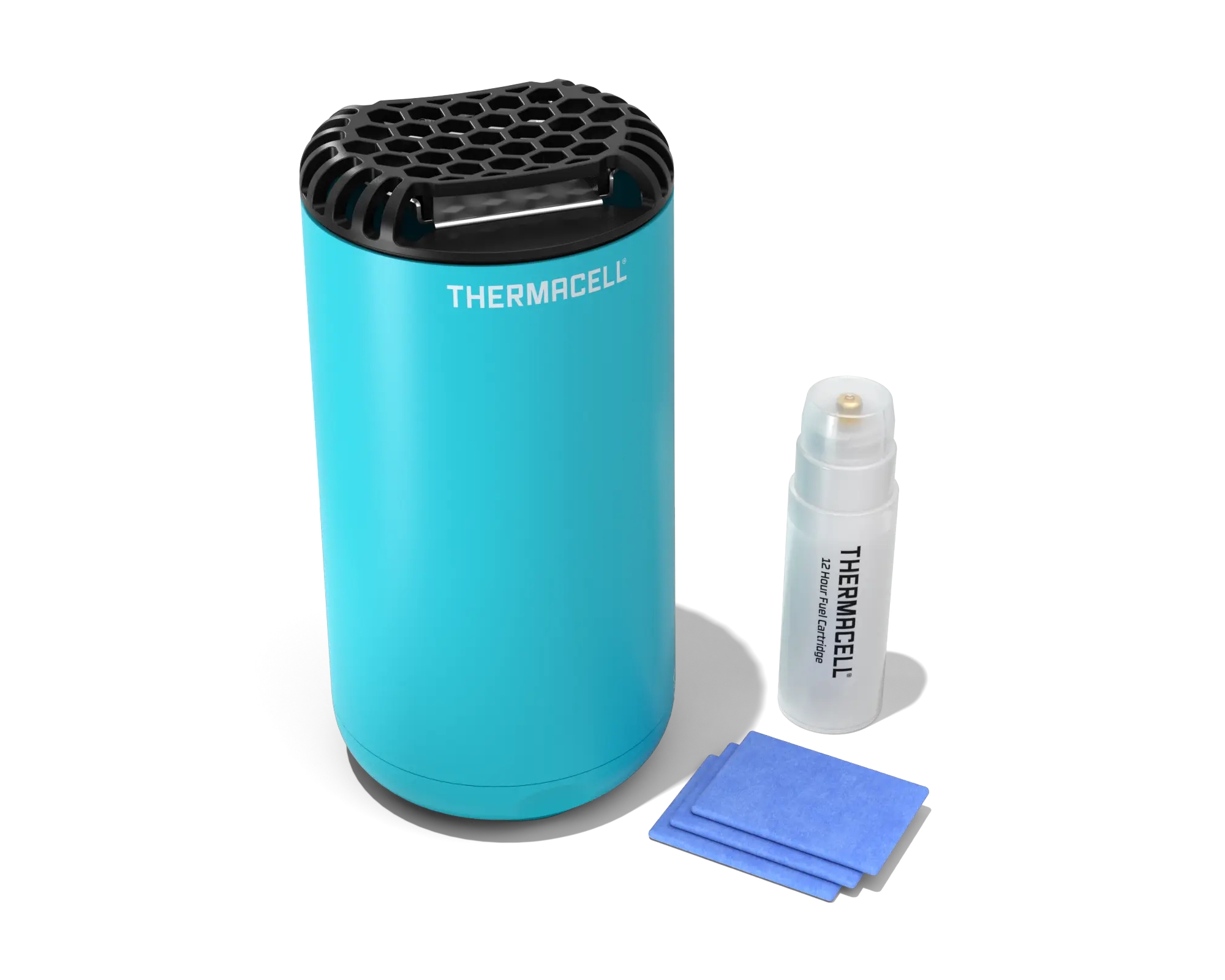
When natural methods are not enough, synthetic repellents can provide an additional layer of protection against pests.
Products containing DEET, permethrin, or picaridin can be effective against mosquitoes, ticks, and other insects. Apply these repellents according to the manufacturer's instructions, focusing on areas where pests are most active.
Tommy Mello, founder of A1 Garage Door Service, says that three products stand out from the crowd when it comes to backyard pest-repelling.
He says, "Firstly, the Ortho Home Defense Insect Killer is particularly effective against ants, spiders, fleas, and ticks. To apply, use a lawn spreader to evenly distribute the granules over your yard, then water the area lightly to activate the ingredients. The granules create a protective barrier that kills insects on contact and continues to repel them for up to three months."
Tommy also recommends Critter Ridder Motion-Activated Repellent and Sprinkler as highly effective against raccoons, squirrels, skunks and deer.
He says, "The granules contain a blend of ingredients that irritate animals' sense of smell and taste, deterring them from treated areas. For best results, create a continuous barrier with the granules, reapply after heavy rain to maintain effectiveness, and use alongside other deterrents like fencing or netting."
Finally, Tommy loves the Thermacell Patio Shield Mosquito Repeller, which comes in a range of appealing colors and at an affordable price. He adds, "This clever device creates a 15-foot zone of protection against mosquitoes, releasing a synthetic version of a natural insect repellent found in chrysanthemum flowers."
Be cautious when using synthetic repellents around children, pets, and edible plants, and always opt for the least toxic option available.
6. Flowers
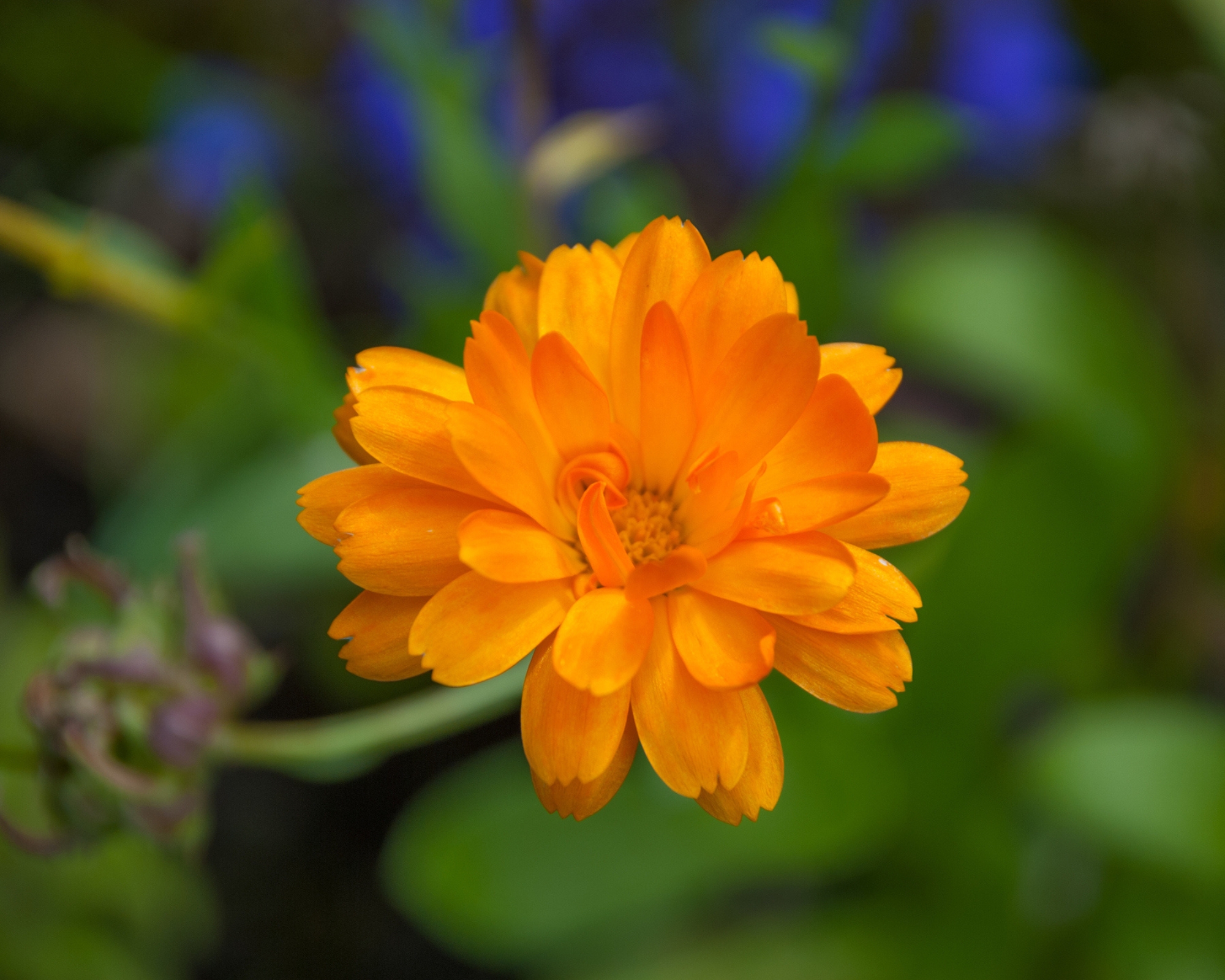
Certain flowers can naturally deter pests while enhancing the beauty of your yard. A double win! Nasturtiums can deter aphids who may well invade your carefully grown vegetable garden (our content editor Eve Smallman tackled aphids successfully with dish soap), beetles, and whiteflies, while chrysanthemums contain pyrethrum, a natural insecticide that repels a wide range of insects.
Marigolds, meanwhile, release a scent that repels mosquitoes, aphids, and nematodes.
Jeremy Yamaguchi, CEO of Lawn Love, explains, "When it comes to pest-repelling flowers, my favorite are marigolds. They're a great, all-natural solution that adds color to your garden. Their particular scent helps repel anything from wasps, to aphids, to moles! And, at the same time, they are attractive to good pollinators like bees and butterflies, so they can help your garden thrive."
Planting these flowers around the perimeter of your garden or interspersed with other plants can create a colorful, pest-resistant natural barrier.
7. Physical barriers
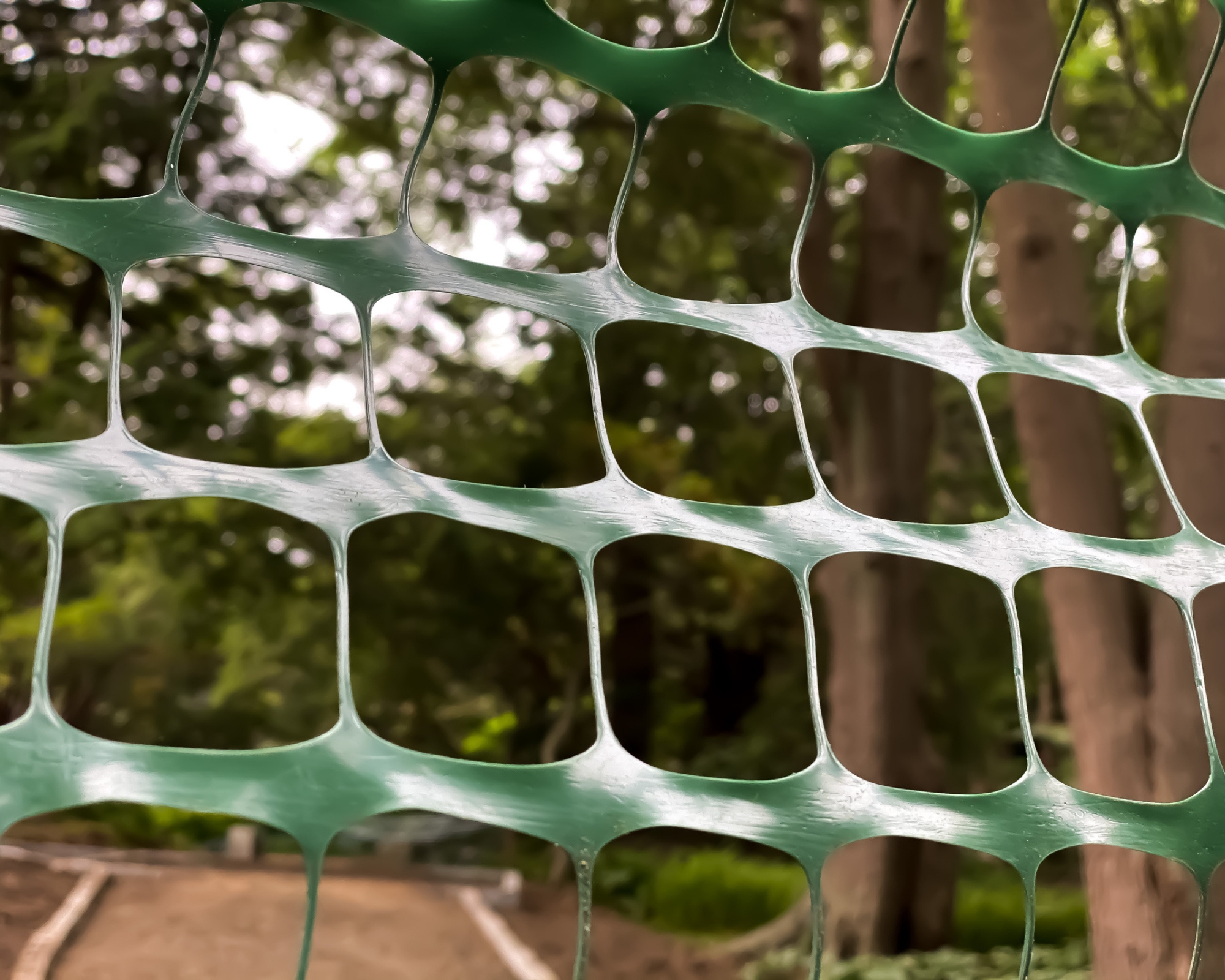
Fencing or netting can be an effective physical barrier to keep larger pests like deer, rabbits, and raccoons out of your yard.
Choose a fence or net that is appropriate for the type of pest you are dealing with. For instance, a tall, sturdy fence can deter deer, while a buried mesh fence can prevent burrowing animals like rabbits.
Tommy says, "These barriers create a physical obstruction that pests cannot easily bypass. For instance, a fence with a buried bottom edge will prevent animals like raccoons and squirrels from digging underneath. The fence should be at least four feet high and buried at least six inches underground to ensure effectiveness.
"Netting is another excellent option for protecting specific areas like vegetable gardens. It should be secured tightly around garden beds and checked regularly for holes or gaps.
"By physically blocking access, these barriers are highly effective against raccoons, squirrels, and deer. Regularly inspect the barriers for any damage or gaps that pests could exploit, ensuring that gates and other entry points are securely closed."
The YARDGARD Black Deer Netting from Wayfair is seven feet tall and blocks larger animal intruders getting into your garden. Tommy adds, "Combining physical barriers with other deterrents, such as repellents, can provide comprehensive protection."
Meet our experts
So there you have it — seven ingenious ways to keep pests out of your backyard. Combining natural and synthetic repellents with proper yard maintenance and physical barriers will help create a multi-layered defense against unwanted pests.
Next, check out these nine backyard privacy mistakes to avoid.







